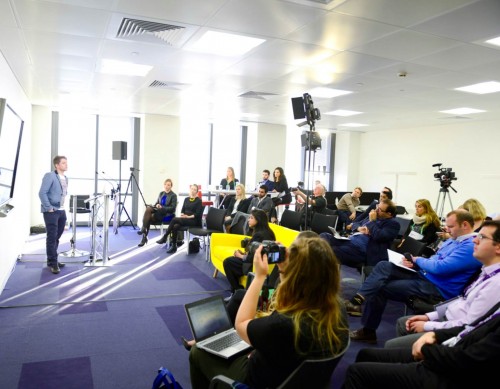
There is no doubt that technology is altering our shopping behaviours. The other day I was asking my nephews (5, 7, and 9) what they wanted for Christmas and their response was “let me show you”. They then proceed to load up Amazon on an iPad and direct me towards an astounding array of toys, superhero costumes, etc. (you get the picture). Needless to say that I was quite surprised at their understanding of sites such as Amazon, particularly the youngest, who seemed to navigate through the site effortlessly. What astounded me the most was that the eldest was reading customer reviews as part of his research. Wow.
The behavioural change of consumers has led to a seismic shift in retail and technology is disrupting each part of the value chain. From a technological point of view, we believe the disruption can be characterised by 4 Ps: personalisation, precision, prediction, and platform.
Personalisation continues to be a hotly debated topic in the retail industry, especially as it intersects with privacy and security. There have been numerous breaches within the industry which have made consumers quite conscious, although this could be limited to a certain subset of consumers. For those willing to share more and more data, it will inevitably allow retailers, data miners, and unscrupulous types to learn more about us, and hopefully, provide personalised quality interactions.
In the age of the Internet of Everything (IoE), and if you believe predictions 50 billion things will be connected by 2020, there are many opportunities for retailers and the supply chain to embrace sensors and to use the data analytics to better understand what is happening, when, where, and perhaps, why. Therefore the Precision of data will unlock the ability for retailers to deploy assets more efficiently and effectively, creating improvements in important performance measures, including return on inventory, employee productivity, and customer satisfaction.
Perhaps the most advanced capability at the intersection of omnichannel, IoE, and Big Data is the ability to create new algorithms that can more accurately Predict the next 15 minutes, the next hour, the next day, week, month, and season. Analytics across numerous data sources — and in some cases, in real time — will be the fuel for new predictive algorithms that will be used to drive efficiency and effectiveness in retail. This level of foresight will contribute to improvements in time to market, revenue, return on inventory investment, supply-chain costs and labour efficiency.
In order to cater for the various sensors, emerging hardware, and software which will enable the personalisation, precision, and prediction capabilities, a well-thought out Platform architecture is key to success. In an age where innovators are creating marketplaces, analytic tools for specific areas of the supply/value chain, etc. integration is key to maximise the benefits.
Through our partnership with WIRED UK, we sponsored the Start-up stage at WIRED Retail 2014 as it aligns with our British Innovation Gateway (BIG) programme and is part of our “innovation at the edge” strategy – which seeks to identify and nurture disruptive innovations from the eco-system of start-ups. The Cisco Start-up Stage was set to showcase the latest and most innovative start-up and fast growth companies.
It was my pleasure to host the stage with Madhumita Venkataramanan, Associate Editor of WIRED, and our panel of judges featuring Helen Fridell, Senior Consulting IoE for Cisco Consulting Services, Theo Osborne, Managing Partner at Force Over Mass Capital and Pia Stanchina, Industry Manager of Fashion, Google UK.
The day featured 18 start-ups addressing all parts of the retail value chain and it was an unenviable task to pick the winner. From my point of view it was interesting to see how each of the innovations mapped to the 4 P’s mentioned above, and how linkages/collaborations between the start-ups could help solve customer issues and produce business outcomes. For example, the real-time mobile analytics (precision), by Wittos, could augment the contextualised based forecasting (prediction) of products, by CB4 – See Before, to allow for an enhanced in-store/promotional voucher campaign which can adapt to the time of day/weather/event/inventory/etc.
In the end, What3Words emerged as the judges’ favourite due to their innovative concept which has mapped every 3m2 of the surface of earth to three unique words. The application of their concept may not be as relevant in London/UK, where we are blessed with an excellent addressing system, but if you were to look at other nations around the world, you would soon discover addressing is sometimes optional, overlapping, or non-existent. So instead of relying on GPS coordinates, which is a string of 18 numbers, the concept of unique mapping to three memorable words seems like a great way to enable addressing.
